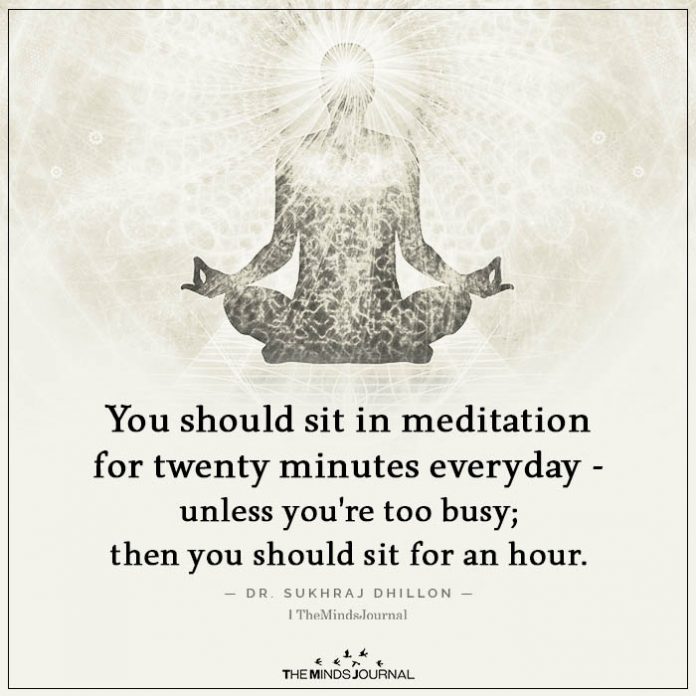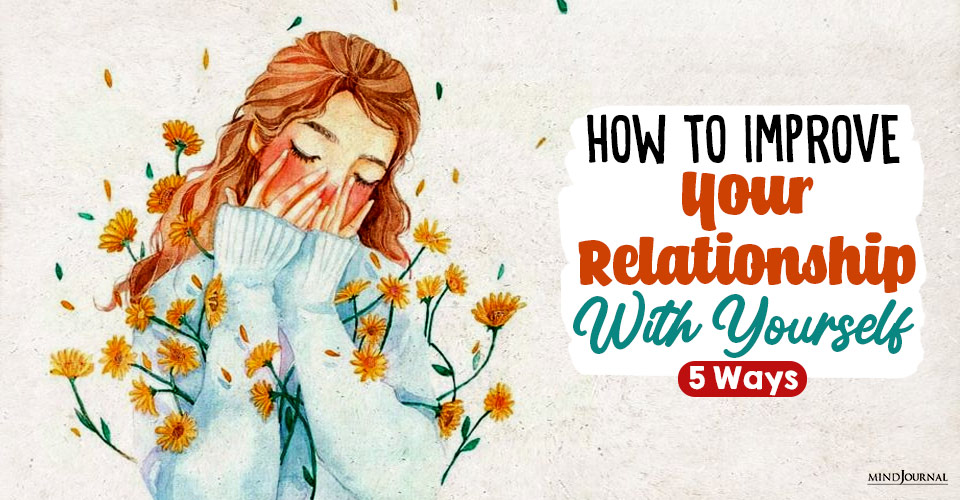The most important relationship in your life will always be the one you have with yourself. So, whenever you feel disconnected on the inside, it’s a sign that you need to improve your relationship with yourself.
We often hear the phrase “relationships take work,” and this phrase is typically used in reference to romantic relationships. But what about our relationship with ourselves?
When we think about the relationships that are important in our lives, we rarely think of the ones we have with ourselves. The relationship you have with yourself is one of the most important ones you will have and it sets the tone for how you show up in your other relationships.
Some of the key elements of building a strong relationship with others include trust, respect, acceptance, compassion, and good communication. These same elements are just as important when it comes to the relationship you have with yourself. The stronger your relationship is with yourself, the more likely you are to communicate your needs effectively to others and to find your relationships satisfying.
If you don’t have a good relationship with yourself, this may result in feelings of low self-worth and is often an indication that you are disconnected from yourself. When you have low self-worth, the key to improving your relationship with yourself is to find ways to reconnect with your authentic self.
It’s not unusual to encounter mental resistance during this process, particularly if you’re used to having a loud inner critic. Try to meet yourself where you’re at and start with one or two habits that feel manageable for you. Below are five ways to start improving your relationship with yourself:
Here Are 5 Ways To Improve Your Relationship With Yourself
1. Honestly Evaluate The Areas In Your Life That Need Attention.
An important step to improving your relationship with yourself is to reflect on the areas in your life where you are not honoring your needs, then evaluate the changes you can make, and set boundaries with others as needed.
A helpful place to start is to consider the areas of your life where you are feeling drained. Perhaps you are answering phone calls long after you’ve left work or you notice you are feeling agitated every time you’re around a particular family member because of the comments they make about your children.
When you start evaluating how you can honor your needs and begin to take action in these areas, you start to build trust with yourself and increase your self-compassion.
2. Practice Self-Compassion.
Research has demonstrated that self-compassion can help combat your inner critic and improve your relationship with yourself. There are many exercises that can help build self-compassion.
A simple way to start practicing is next time you’re being critical of yourself, acknowledge that you are experiencing suffering in the present moment, and rather than try to shame yourself or bottle it up, ask yourself what you need at that moment and reflect on ways you can show yourself compassion.
If you have a loud inner critic and feel stuck, it can help to imagine what you would say to a friend in a similar situation, then apply those same statements to yourself.
Related: 6 Life Changing Steps To Practice Mindful Self Compassion
3. Engage In Meaningful Self-Care.
When implemented thoughtfully, self-care can be an antidote to feeling disconnected from yourself. Self-care involves intentionally considering how you can take care of yourself and recharge before you’re running on empty. It’s a process that helps you feel connected to yourself and replenishes you.
Self-care can include relaxing activities or it can include activities that protect your energy such as not responding to work emails after a certain hour or saying no to additional projects or requests for your time. Self-care also includes getting adequate rest, eating nourishing foods, and moving your body regularly.
4. Commit To One Habit That You Keep Every Day.
Imagine that you have a friend who frequently cancels at the last minute or doesn’t show up for plans you made together. It is likely that you would start to lose trust in that friend over time. The same thing happens when you don’t nurture the relationship you have with yourself.
Rather than overwhelm yourself with trying to establish several new habits at the same time, pick one that is realistic for your schedule and initially no more than 10-20 minutes per day. Some examples are practicing daily meditation for 5 minutes, journaling for 10 minutes, going for a 5-minute walk, or reading a book you enjoy for 10 minutes.
This process can help you build trust with yourself and improve how you relate with yourself over time.
Related: Three Wrong Ways To Love Yourself And How To Do It Right
5. Practice Meditation.
Meditation can help to change the relationship you have with your thoughts, which can assist in reducing the impact of negative self-talk if practiced regularly. The positive effects of meditation can also improve your relationship with yourself and with others.
Research has shown that meditation can help increase your self-compassion as well as your compassion for others. There are meditations designed to improve your relationship with yourself and others, such as the Loving-Kindness Meditation and the Self-Compassion Break.

It’s helpful to keep in mind that you can improve your relationship with yourself no matter what point you are starting at and that progress is not linear. Similar to any other relationship, you’re not immune to criticism, frustration, or feeling disconnected at times. Although it will take consistent effort and time to build a healthier relationship with yourself, the benefits of doing so can positively impact your life in many ways and your future self will thank you.
Disclaimer: This article is for informational purposes only. This article is not intended to be a substitute for professional or psychological advice, diagnosis, or treatment. Always seek the advice of your mental health professional or other qualified health providers with any questions you may have regarding your condition or well-being.
References:
Binder, P., Dundas, I., Stige, S. H., Hjeltnes, A., Woodfin, V., & Moltu, C. (2019). Becoming Aware of Inner Self-Critique and Kinder Toward Self: A Qualitative Study of Experiences of Outcome After a Brief Self-Compassion Intervention for University Level Students. Frontiers in Psychology,10. doi:10.3389/fpsyg.2019.02728 Condon, P., Desbordes, G., Miller, W. B., & Desteno, D. (2013). Meditation Increases Compassionate Responses to Suffering. Psychological Science,24(10), 2125-2127. doi:10.1177/0956797613485603 Jazaieri, H., Jinpa, G. T., Mcgonigal, K., Rosenberg, E. L., Finkelstein, J., Simon-Thomas, E., Goldin, P. R. (2012). Enhancing Compassion: A Randomized Controlled Trial of a Compassion Cultivation Training Program. Journal of Happiness Studies,14(4), 1113-1126. doi:10.1007/s10902-012-9373-z
Dr. Zarrabi is the author of Mindful Dating, a Psychology Today blog about attraction and relationship patterns. Check it out at www.psychologytoday.com/us/blog/mindful-dating
Written By Roxy Zarrabi Originally Appeared In Psychology Today
The more you try to improve your relationship with yourself, the happier and healthier your future self will be. Always treat yourself kindly, and give yourself what you need to feel happy, and at peace. The healthier relationship you have with yourself, the content you will be in the long run.










Leave a Reply